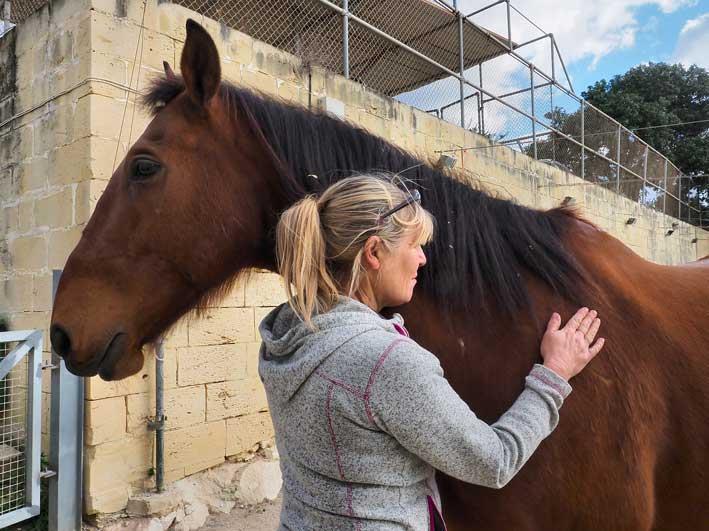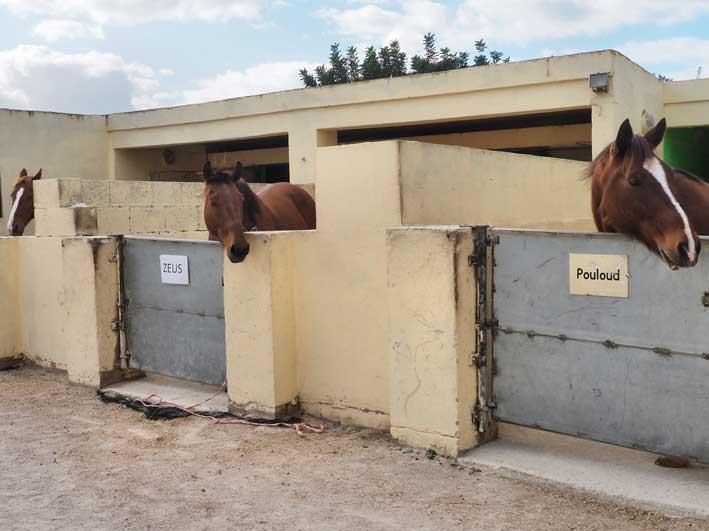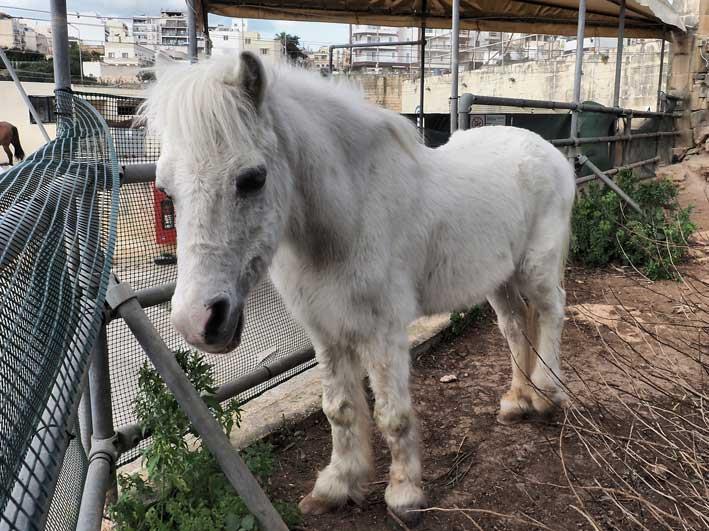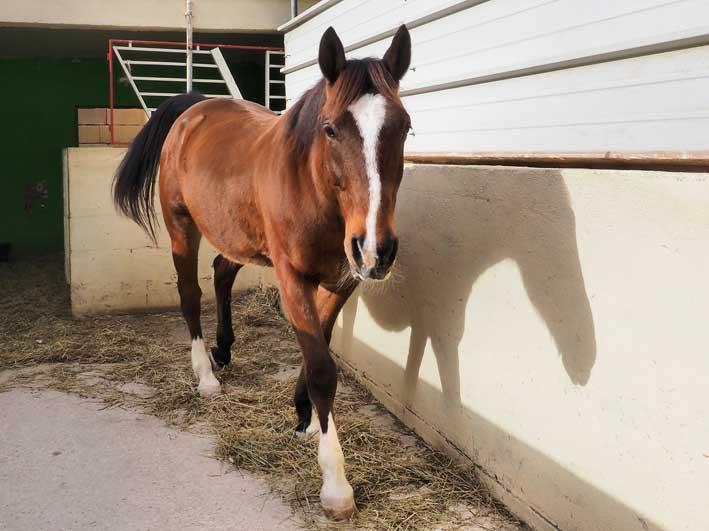What inspired you to start working in this area?
I started working voluntarily with horses a few years ago, here at Inspire. I worked with one little boy who has autism and is non-verbal. He was having a hard time familiarising himself with the horse so we worked together for many lessons, and he finally got it: he looked back at me and held his thumbs up. I was moved by the connection that we had and realised that if I could do that with one child, I could do it for so many more. That experience changed me - I came because of the horses, and the children stole my heart.

That sounds like an incredibly powerful experience. When did you decide to start working full-time at Inspire?
It was a few years ago that I decided that working with equine therapy was my true calling. Last year I took up my current post here at Inspire, after graduating as a physiotherapist and specialising in equine animals.
We adhere to very high standards; all our instructors are extremely knowledgeable about the physical, emotional, and mental challenges that our clients face, and I knew that I wanted a more significant role within the organisation. All the members of staff here are incredibly compassionate and must be trained often to be in the arena with the clients, something for which I am grateful that Inspire actively supports.
Many of our horses have been donated and quite a few of them were rescued. We now have three horses for riding and one miniature welsh pony, Flick, who can't be ridden but who allows the children to bond with the animals on the ground and get comfortable being around horses. We see between 75-80 clients a week with the help of a fantastic group of Inspire volunteers.

Seventy-five to eighty clients a week is quite impressive! What do the children get out of working with the horses?
Everyone is dealing with stress and animals can be extremely therapeutic: they never judge us. Even though they are huge, horses can be so kind and loving and understanding - they have so much personality! They stand with you in the moment. We work with quite a few children with autism and we've seen such fantastic growth in their learning, communication, and balance.
The children's behaviour has improved, and they have become more social. I worked with one rider who was non-verbal when he came to us. Now he is really coming out of his shell! The horses give the kids a lot of confidence to achieve. It's essential to add that this therapy is part of a more extensive therapy programme offered at Inspire.
We also work with children and young adults with a variety of other physical and learning disabilities and horseback riding improves their balance, coordination, range of motion, muscle strength and flexibility and so much more. Working with them I've had to remove the word 'no' from my vocabulary: We never say that a child can't do something; it's just a matter of when!

Do the children ride the horses?
In therapy sessions, service users are riding the horses for specific reasons. It is crucial to clarify that these are not 'horse-riding' lessons. Whether a person does mount work or not, is determined by a service user's desire and level of therapeutic appropriateness. Our service users and their therapists collaborate to determine if riding will be a helpful therapeutic exercise. When the situation is right, there is much to be gained by mounted work.
A therapeutic riding session does not only consist of the riding aspect but also includes other functional activities, such as brushing, grooming and feeding the horse, which help improve both social skills and fine motor skills such as grasping and pincer grip (ie, touching the thumb to other fingers on the same hand.) The aims of THR vary depending on the abilities and needs of the service user, with the sessions being adapted to accommodate these.
With riders who have minor limitations, the intervention aims to prevent inactivity, to maintain and improve physical capacity and reduce or prevent fear of falling during movement. When the rider has more severe limitations that limit the activities of daily living, such as reduced balance, the aims of therapy would be that of improving posture in sitting and standing, reaching, grasping, balance, transfers, and gait re-education.

What if you don't know anything about horses?
No problem. The focus is not on horse knowledge or know-how. It's on the relationship. Equine-Assisted Therapy is an experiential therapy where we partner individuals with horses to facilitate real and lasting change. The process begins by identifying a horse to build a "real" relationship. As the therapy develops, self-awareness, emotion regulation, insights into relationship patterns, confidence and attachment patterns unfold. Participants learn about and practice new strategies for healthy relationships to achieve goals both inside and then outside the arena.
The Inspire Foundation believes that everyone has a right to equality and inclusion and its mission is to try to help everyone with a disability achieve this. They do this by providing individuals and their families with educational, therapeutic and leisure services. They also advocate inclusion, educate the general public and raise awareness among peers. It is important to note that the equine therapy service is predominantly offered as part of the programmes in Inspire. Inspire is currently fund-raising to improve these facilities and donations can be made via www.inspire.org.mt
This articles was published first in It's an Animal's World Supplement and sponsored by Air Malta